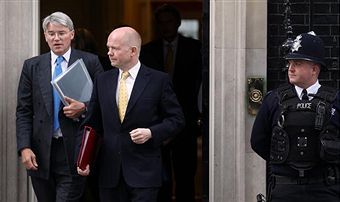 “A well-targeted aid budget is essential if Britain is to punch above its weight on the world stage.” That’s how Tim Montgomerie finishes his neat defence (£) of British aid policy for the Times today. But, putting aside the matter of whether it’s wise to give aid to, say, India at a time of spending restraint back home, Tim’s claim rather inspires a question: is our aid budget well-targeted? And the answer, it seems to me, is encoded in Ian Birrell’s punchy piece for the Evening Standard.
“A well-targeted aid budget is essential if Britain is to punch above its weight on the world stage.” That’s how Tim Montgomerie finishes his neat defence (£) of British aid policy for the Times today. But, putting aside the matter of whether it’s wise to give aid to, say, India at a time of spending restraint back home, Tim’s claim rather inspires a question: is our aid budget well-targeted? And the answer, it seems to me, is encoded in Ian Birrell’s punchy piece for the Evening Standard.
Ian’s overall point is similar to that made by economists such as Dambisa Moyo, whose work we have mentioned on Coffee House before now: that international aid is failing, on a grand scale, to do anything about the poverty it’s meant to alleviate. Worse, it even has counterproductive effects. Here’s one that he highlights:
It’s a disheartening situation – but it needn’t be. One component that’s often left out of the debate is how much charitable giving the British public does anyway, even without the state as middle man. According to the latest figures, we are second only behind America in the amounts that we donate abroad:“A report from Harvard Medical School found that when health-related aid was given to governments in sub-Saharan Africa they often reduced spending on health. Politicians let aid pay for schools and hospitals, allowing them to steal money or spend it on security. Then they win elections using bribery or violence rather than by providing decent public services and being accountable to voters.”

Even when drawn in per capita form, we’re still the second best givers in the world:

This is, if you like, a Big Society solution to the aid question: people deciding whom to give their money to, and no doubt getting better results than government transfers ever could. Which is why it’s striking that the coalition has such a centralised view of aid spending, as typified by the 0.7 per cent target. In his piece, Tim writes that “the price of a tall chai latte vaccinates ten children against polio”. It’s a sobering fact – but one that I’m sure many Brits would meet by putting their hands in their pockets. And that’s something which is worth celebrating.






Comments